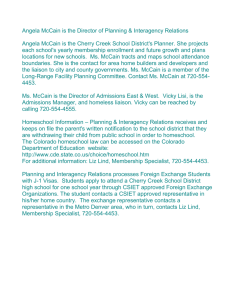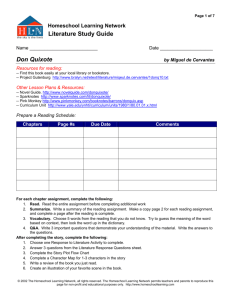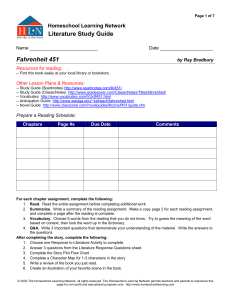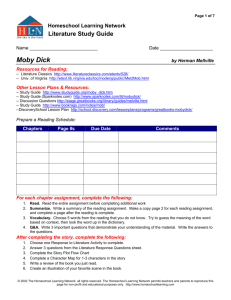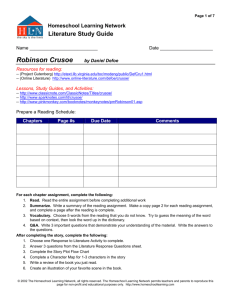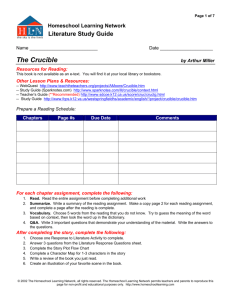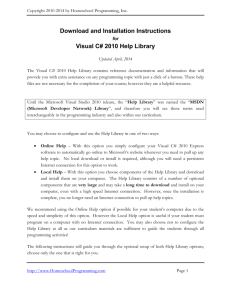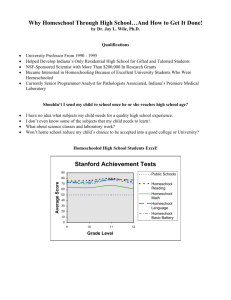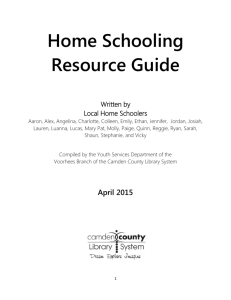why pennsylvania*s homeschool law should be revised
advertisement
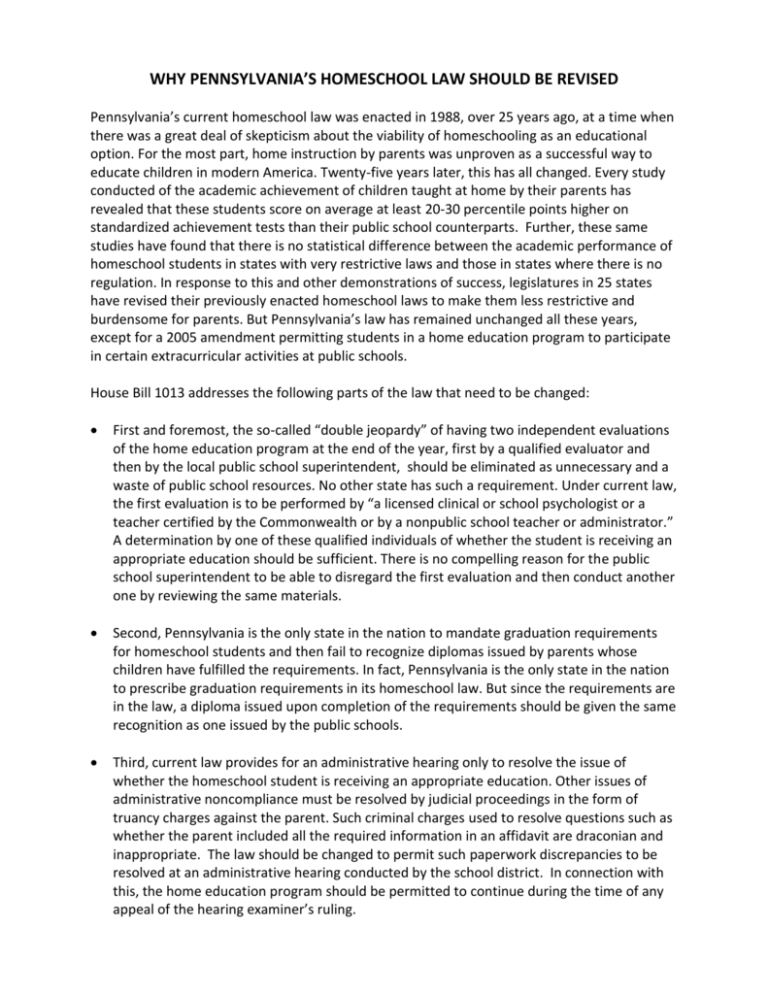
WHY PENNSYLVANIA’S HOMESCHOOL LAW SHOULD BE REVISED Pennsylvania’s current homeschool law was enacted in 1988, over 25 years ago, at a time when there was a great deal of skepticism about the viability of homeschooling as an educational option. For the most part, home instruction by parents was unproven as a successful way to educate children in modern America. Twenty-five years later, this has all changed. Every study conducted of the academic achievement of children taught at home by their parents has revealed that these students score on average at least 20-30 percentile points higher on standardized achievement tests than their public school counterparts. Further, these same studies have found that there is no statistical difference between the academic performance of homeschool students in states with very restrictive laws and those in states where there is no regulation. In response to this and other demonstrations of success, legislatures in 25 states have revised their previously enacted homeschool laws to make them less restrictive and burdensome for parents. But Pennsylvania’s law has remained unchanged all these years, except for a 2005 amendment permitting students in a home education program to participate in certain extracurricular activities at public schools. House Bill 1013 addresses the following parts of the law that need to be changed: First and foremost, the so-called “double jeopardy” of having two independent evaluations of the home education program at the end of the year, first by a qualified evaluator and then by the local public school superintendent, should be eliminated as unnecessary and a waste of public school resources. No other state has such a requirement. Under current law, the first evaluation is to be performed by “a licensed clinical or school psychologist or a teacher certified by the Commonwealth or by a nonpublic school teacher or administrator.” A determination by one of these qualified individuals of whether the student is receiving an appropriate education should be sufficient. There is no compelling reason for the public school superintendent to be able to disregard the first evaluation and then conduct another one by reviewing the same materials. Second, Pennsylvania is the only state in the nation to mandate graduation requirements for homeschool students and then fail to recognize diplomas issued by parents whose children have fulfilled the requirements. In fact, Pennsylvania is the only state in the nation to prescribe graduation requirements in its homeschool law. But since the requirements are in the law, a diploma issued upon completion of the requirements should be given the same recognition as one issued by the public schools. Third, current law provides for an administrative hearing only to resolve the issue of whether the homeschool student is receiving an appropriate education. Other issues of administrative noncompliance must be resolved by judicial proceedings in the form of truancy charges against the parent. Such criminal charges used to resolve questions such as whether the parent included all the required information in an affidavit are draconian and inappropriate. The law should be changed to permit such paperwork discrepancies to be resolved at an administrative hearing conducted by the school district. In connection with this, the home education program should be permitted to continue during the time of any appeal of the hearing examiner’s ruling.

